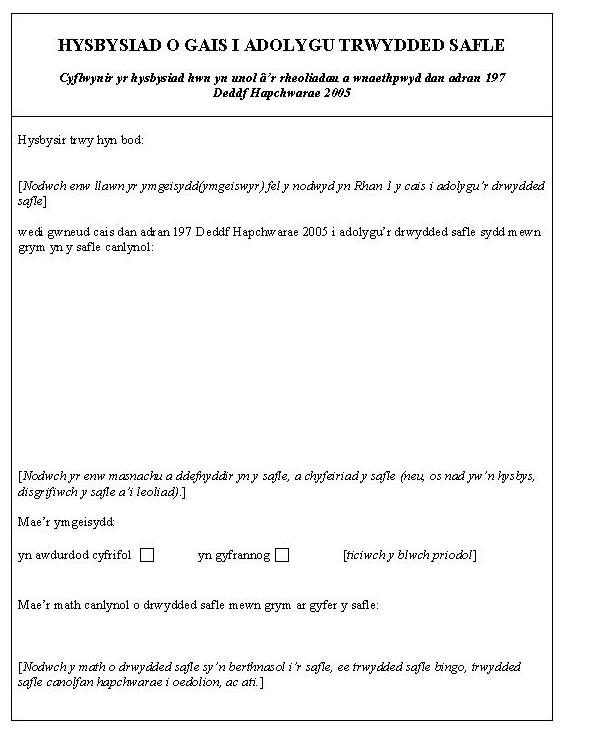10 STRATEGIES FOR STAYING HUMAN DURING RESIDENCY TRAINING ALLAN
(DEPARTMENTPROGRAM NAME) UNIVERSITY OF ARKANSAS STRATEGIES FOR IMPROVEMENTMAINTENANCE RESULTING10 STRATEGIES FOR STAYING HUMAN DURING RESIDENCY TRAINING ALLAN
12 INSTRUCTIONAL DIFFERENTIATION STRATEGIES—THREE LEVELS LEVEL ONE—LEAST CHALLENGING TO
25 MANAGEMENT STRATEGIES FOR DELHI METRO’S SUCCESS……THE SREEDHARAN WAY
3 EQUITY STRATEGIES 20032006 AS APPROVED BY SENATE ON
39363 KNOWLEDGE ECONOMY FORUM II IMPLEMENTING KNOWLEDGE ECONOMY STRATEGIES
10 STRATEGIES FOR STAYING HUMAN DURING RESIDENCY TRAINING
10 STRATEGIES FOR STAYING HUMAN DURING RESIDENCY TRAINING
Allan Peterkin, MD
Aim to maintain an “internal locus of control”.
Seek to control what you can, rather than passively accepting everything that happens to you.
Draw a “self-esteem pie”.
Draw a circle and label slices as: work, love, play, spirit. How big is each slice in your current life? How balanced are your goals? Use the drawing as a reminder of where you are now and where you would like to be in terms of feeling whole.
Seek support.
Building and maintaining relationships is the most protective of all strategies in surviving residency. If you feel overwhelmed, your provincial residents’ association can put you in touch with confidential resources and professional counselling.
Don’t neglect the body.
Follow the advice you would give to your own patients about self care.
Know your rights.
Read your hospital contract/collective agreement to clarify work duties and benefits including study, illness and maternity leaves.
Read around your cases.
Reviewing a topic when it is immediately relevant to patient care is a good motivator but also contextualizes clinical principles in a way you will remember.
Keep a journal to record your own thoughts, feelings, ethical dilemmas and “first” (i.e., first delivery, first death of a patient, first clinical mistake).
Be a generous and patient teacher to junior residents and medical student. How we treat one another either perpetuates workplace abuse or humanizes us and the profession.
Don’t be afraid to say NO if a demand doesn’t fit or is unreasonable.
Live in the moment but consider your options. Many residents feel the only way “to get through” training is to live in the future and neglect their lives in the “here and now”. At the same time it is comforting to know that medical training confers many options most professionals do not have – you can teach, write, do research, consult, broadcast, re-specialize, travel, volunteer, advocate. Whenever you feel stuck, be creative in your goal planning/re-assessment.
Source: Canadian Medical Association. Creating a healthy culture in medicine: A report from the 2004 International Conference on Physician Health
5 EFFECTIVE COACHING RESOURCE EFFECTIVE COACHING STRATEGIES (APPLIES TO
5 INFORMAL CONSULTATION ON “STRATEGIES FOR GENDER EQUALITY IS
A NXIETY MANAGEMENT FACTS & STRATEGIES FOR PARENTS 1
Tags: allan peterkin,, training, staying, residency, during, strategies, human, allan
- CONCURSO DE TRASLADOS PLAZAS QUE SE OFERTARÁN EN NAVARRA
- SUPPORTING DOCUMENT 1 REGULATION OF INFANT FORMULA PRODUCTS IN
- 3 UNIVERSIDAD DE BUENOS AIRES FACULTAD DE CIENCIAS EXACTAS
- INSTITUT DEL TEATRE CENTRE D’OSONA CST MIQUEL DELS SANTS
- MEMORANDUM TO FROM SUBJECT DESIGNATION AS PROJECT OFFICER FOR
- SOLICITUD DE ENTREGA DE CURRICULUM VITAE FECHA DE SOLICITUD
- !doctype Html html Langen head titlewelcome to Trimac Dental
- ALLEGATO 1 QUADRO ATTUATIVO DELLA LEGGE REGIONALE N 3397
- CONCURS DE CUINA TOPCUINER JÚNIOR NADAL 2021 L’AJUNTAMENT
- OSNIVANJE PRIVATNE PRAKSE I) PRILOZI UZ ZAHTJEV ZA IZLAZ
- MARCH 8 2004 BY ELECTRONIC TRANSMISSION THE HONORABLE MAGALIE
- COLERAIN POLICE CITIZENS ON PATROL OPERATIONS MANUAL COLERAIN
- EMERGENCY INSTRUCTIONAL TIME TEMPLATE SECTION 5201 202122 SCHOOL
- CONCURSO OPOSICIÓN PARA INGRESO EN EL CUERPO DE MAESTROS
- OTHER DEPOSITORY CORPORATIONS SURVEY ITEM OPENING STOCK TRANSACTIONS VALUATION
- 1 KISKUNHALASI KÖZÖS ÖNKORMÁNYZATI HIVATAL JEGYZŐJE 6414 PIRTÓ
- ZAŁĄCZNIK NR 1 DO ZAWIADOMIENIA O ZAKOŃCZENIU BUDOWY POS
- CARREFOUR APUESTA POR LAS PYMES DE CASTILLA Y LEÓN
- FUTBOLO VARŽYBŲ LENTELĖ LIETUVOS SPORTO DRAUGIJOS “ŽALGIRIS” 2013 M
- (NAZIV TVRTKE PONUĐAČA PROGRAMSKE PODRŠKE ZA PRIKLJUČENJE ORDINACIJE PZZA
- 4 ¿CÓMO HACER UN COMENTARIO DE TEXTO HISTÓRICO?1 IMPRESCINDIBLE
- REGULATIONS FOR PROVISION OF BROKERAGE AND CUSTODY SERVICES THE
- ZA SREDU 15042009 SRAMOTA IH DA SE OBRATE
- SPF ALERT 20082 (REVISED) ISSUED 22608 REISSUED 5208 PLEASE
- CHUBUT MINISTERIO DE ECONOMÍA Y CRÉDITO PÚBLICO SISTEMA INTEGRAL
- UNIVERSITÀ DEGLI STUDI DI TRENTO SCHOOL OF INTERNATIONAL STUDIES
- AGENTIA DE TURISM DAL TRAVEL STR GEORGE ENESCU NR
- PROTOKOLL FRA UNIVERSTETETS STUDIEKOMITE MØTE 508 TORSDAG 22 MAI
- 04 NİSAN 2014 BASIN BÜLTENİ BURSA KENT KONSEYİ TUNUSLU
- PBSPERVASIVESQL PBSMICROSOFT SQL EN JÄMFÖRELSE EXTERN INFORMATION
ZAŁĄCZNIK NR 1H OGÓLNY PLAN HIGIENY STREFA PIERWSZA RODZAJ
GRANTS AND ACCOUNTING SPECIALIST INTERVIEW QUESTIONS GENERAL THE GRANTS
28 DR CHRISTINA MIU BING CHENG HONORARY RESEARCH FELLOW
 REGISTRATION ONLINE OR BY MAILFAX PLEASE REGISTER 10 DAYS
REGISTRATION ONLINE OR BY MAILFAX PLEASE REGISTER 10 DAYS FLIEGERÄRZTLICHE UNTERSUCHUNGSSTELLE DR MED HANSULRICH PREISENDÖRFER FACHARZT FÜR INNERE
FLIEGERÄRZTLICHE UNTERSUCHUNGSSTELLE DR MED HANSULRICH PREISENDÖRFER FACHARZT FÜR INNEREPATVIRTINTA 2009 M BIRŽELIO 10 D LKKA SENATO POSĖDYJE
 GOVERNO DO ESTADO DO RIO GRANDE DO SUL SECRETARIA
GOVERNO DO ESTADO DO RIO GRANDE DO SUL SECRETARIA FORM OF THE NOTICE OF APPLICATION TO BE GIVEN
FORM OF THE NOTICE OF APPLICATION TO BE GIVENAPARTADO DE LÉXICO (CF BLOQUE A) DESCUBRE LAS PALABRAS
 MEETING SUMMARY NORTHWESTERN ENERGY TRANSMISSION ADVISORY COMMITTEE JULY 26
MEETING SUMMARY NORTHWESTERN ENERGY TRANSMISSION ADVISORY COMMITTEE JULY 26 TS EN ISO 90012015 İZMİR KÂTİP ÇELEBİ ÜNİVERSİTESİ TURIZM
TS EN ISO 90012015 İZMİR KÂTİP ÇELEBİ ÜNİVERSİTESİ TURIZM 14 NISAN 2008 PAZARTESİ RESMÎ GAZETE SAYI 26847
14 NISAN 2008 PAZARTESİ RESMÎ GAZETE SAYI 26847 POWERPLUSWATERMARKOBJECT503590095 PD14 REVISED 2252020 SOLE SOURCE JUSTIFICATION SECTION
POWERPLUSWATERMARKOBJECT503590095 PD14 REVISED 2252020 SOLE SOURCE JUSTIFICATION SECTION T H E U N I V E R
T H E U N I V E RNOTICE OF ASSIGNMENT BY ASSIGNEE DATE
 INSERT POST NAME SQUADRON XX SONS OF THE
INSERT POST NAME SQUADRON XX SONS OF THETESZTKÉRDÉSEK 1 KI KAPJA A TÁJÉKOZTATÓ LEVELET 1
 MODIFICACIÓN DEL DOCUMENTO ÚNICO ELECTRÓNICO (DUE) EN NOTARÍA A
MODIFICACIÓN DEL DOCUMENTO ÚNICO ELECTRÓNICO (DUE) EN NOTARÍA ATICARET HUKUKU 20142015 AKADEMIK YILI TEK NUMARALI ÖĞRENCILER İÇIN
 ROCKET SCIENCE AND TECHNOLOGY 4363 MOTOR AVE CULVER CITY
ROCKET SCIENCE AND TECHNOLOGY 4363 MOTOR AVE CULVER CITY